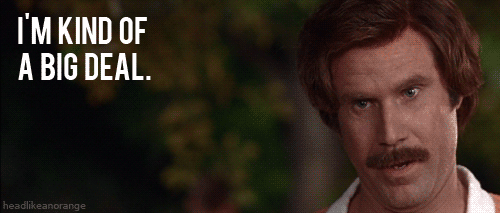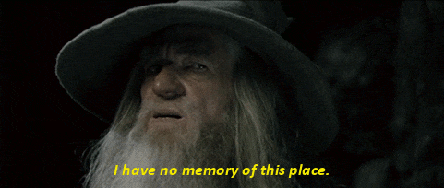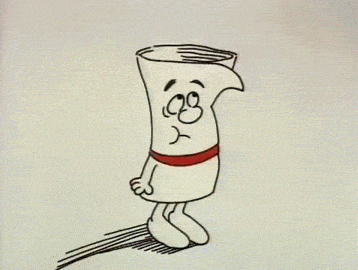In a week where every post and every article that we see across social media seems to circle right back to the results of the 2016 Election Cycle, I have come to the conclusion that the last thing I want to contribute this week is an article that reads exactly like every other article that has been posted around it. Given how everything this week seems to be about political repercussions, I admittedly had a fairly difficult time deciding what to write about instead. The answer, I've decided, is something rather simple: write about what you love.
I love superheroes. I always have, and probably always will. Unfortunately, Hollywood doesn't always seem to agree with me. Oftentimes critics will pan superhero movies as repetitive, eye-pleasing blockbusters affair without any kind of real artistic merit to them - and true, they can be a bit formulaic at points. However, I long ago decided that a piece holds only as much meaning as you seek in it. It is not what the piece entails that makes it art, but what we as viewers imbue in it that makes it so. In conclusion, here's 9 lessons I believe viewers can take from this past week's opening of Marvel's "Doctor Strange" - free of any major spoilers, of course. We're not savages.
1. Pride Leads To Destruction
When we first meet our hero, Doctor Stephen Strange is the textbook definition of "narcissist". As with many origin stories, he has a lot to learn before he's ready to take on any kind of heroic mantle. When a car accident leaves the surgeon with severe nerve damage in his hands, it takes away both his purpose and his livelihood - and the Doctor's fall from grace only continues from there.
Confidence is encouraged and even necessary to reach one's full potential. However, an excess of anything is dangerous, and confidence is no different. When one is prideful, they become complacent and reckless. They believe they're infallible. Even worse, they believe that even if they failed it wouldn't matter because they're somehow above that kind of thing. Eventually however, this mentality will catch up with them, and life will deliver a swift kick to crotch that might make them reconsider how invincible they actually are. All in all, it's best to bear this lesson in mind before we become life's punching bags.
2. Preconceived Judgements Are Often Incorrect
For a long time, Doctor Strange rejects the concept of any kind of healing that is not in line with western medicine. If it does not align with what he thinks he knows, he tosses it out and disregards it as lunacy. It isn't until desperation completely sets in that he turns to more unconventional methods of healing, and even then it takes the world's strangest acid trip to fully convince him. Additionally, when the hero is told of a being known as "The Ancient One", he immediately assumes it must be the old, bearded, Asian man sitting in the middle of the room, rather than the bald Caucasian woman serving him tea (ah, racism, how we missed thee).
In the same manner, we often reject that which we do not already know - which is ironic, given that if we already knew it we wouldn't need to search in the first place. For centuries people believed that the Earth was flat, simply because they could not see the Earth's curvature from the surface level. Just as these conceptions of the physical world and the laws of nature can be incorrect, so too can our assumptions of people be equally misguided.
True, that kid in our Intro To Psychology class may be an angsty loner. Maybe he's just a jerk, and there's nothing more to it - or maybe he keeps to himself because he's been hurt too often before. Maybe that know-it-all in your English class is really just an arrogant prick, but maybe they have a chip on their shoulder because no one has ever believed they would amount to anything. You never really know anyone's whole story, just the page that is open to you in that particular instant. So rather than assume we know where they came from, we should instead help alter the path they're travelling to a more positive destination.
3. We Are Not The First To Take This Journey
Doctor Strange, unlike most heroes, is not granted his abilities by self-teaching or a destined twist of fate. Rather, he is taught everything he knows by peers and instructors who came before him. Each had their own reasons for continuing to learn, but almost all of them came initially because they sought healing from something - either physical or spiritual in nature. This revelation that the Doctor is not the only one with struggles he must endure is a fact that he spends much of the movie grappling with, and it is often something difficult for us as humans to grasp in general.
We are not the center of the universe, nor are we the first to experience anything that might take place. Someone, somewhere, at some point in time, has endured exactly what we are feeling now, and they made it through. Finding these people and gaining strength through community will grant us courage and healing far beyond what we could dream of on our own.
4. Never Give Up
I am a firm believer that our greatest failures and our greatest strengths are often intrinsically tied, and Doctor Strange is a perfect example of this philosophy. Strange is an arrogant prick because he is ridiculously stubborn and determined. Conversely, he is ridiculously stubborn and determined largely because he's an arrogant prick. Regardless, this determination is a theme that runs throughout the movie - Strange is not the strongest sorcerer around yet. He's not the healthiest or the most learned. He is, however, the most determined.
We can't control whether we're the smartest person in the room, or the fastest, or the most attractive. The only thing we can really control is how much effort we put into something. If we keep pushing through and finding the next step we have to take, then good things are sure to come. They may not be the answers we are looking for, but answers of some kind will present themselves, and this is the distinction that we have to bear in mind when we keep fighting.
5. "The Bill Comes Due"
Our actions have consequences. These consequences may be good or bad, but the very fact that a choice has been made means that something is going to happen as a result. Even a choice to not make a choice is a choice in and of itself. Eventually, these choices catch up with us, and we will have to reap the fruit of what we have sown in due time.
In "Doctor Strange", this line is repeated many times by the Doctor's peer and ally Karl Mordo. When Mordo delivers the line, it is a portent of things to come from characters in the film tampering with forces beyond their control or comprehension. In truth, the "bill", as he calls it, is not always a negative thing. Sometimes it is a reward for things that have been done correctly. More often than not, however, the bill is a consequence, not a gift. We all make mistakes, and these mistakes have repercussions. So, before we make decisions, perhaps we would do well to contemplate whether we want to pay the bill when it comes due.
6. It's Not About Us
In many ways, "Doctor Strange" is a film about a narcissist realizing that sometimes you have to put yourself last for the good of everyone around you. Sometimes, getting what we want is not in the best interests of those around us, and in times like this we may have to accept that the universe does not, in fact, revolve around our whims or desires. There is more to life than success, and sometimes putting yourself last is the only way to truly be first place in life. Sometimes there is meaning to be found in the pain.
This is not to say that one should abandon their basic needs and force themselves into a life of neglect or self-deprivation. Rather, one should be willing to set aside the things they want for the things others need. Needs may not be sacrificed, as this would be unhealthy for the giver. Wants, however, only take us so far in life. When we die, our material possessions will be waste and void. Even our reputations and our livelihoods will fade into oblivion with enough time. In truth, the only thing on earth that continues on indefinitely is the effects we leave on other people, and the lives we change while we are here - for better or worse.
Our actions will reap consequences, and the bill will come due. All of our judgements, all of our pride, and all of failings will reap consequences that will cycle back around. Our bill may not even come to pass on us - it may be something the next generation is left to pay in our stead. So, perhaps the next time we are deciding whether a course of action is worthwhile, we'll ask ourselves the following question:
"When the bill comes due, are we willing to pay the price?"


























